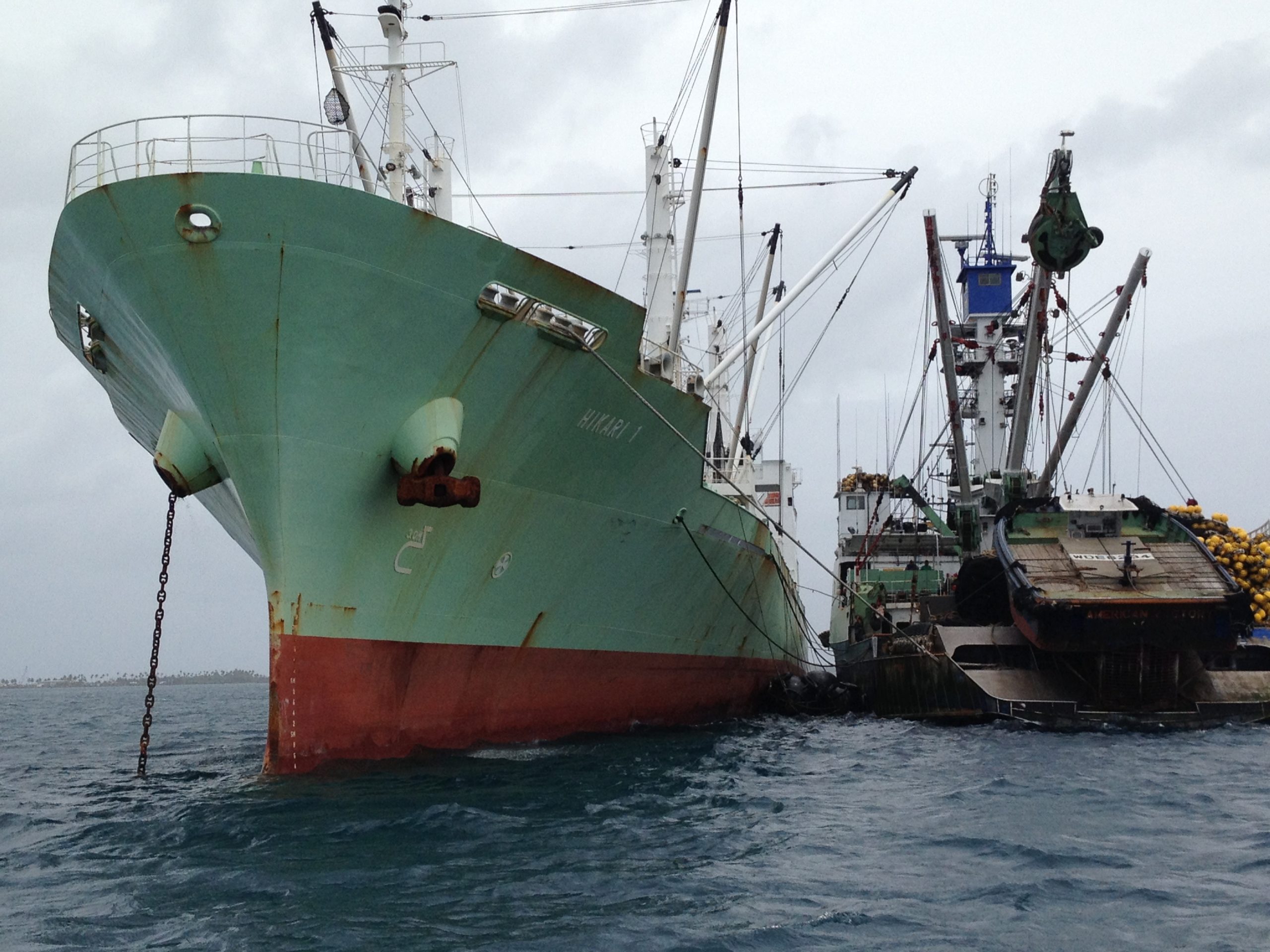
The Western and Central Pacific Fisheries Convention defines transhipment as “the unloading of all or any of the fish on board a fishing vessel to another fishing vessel either at sea or in port.” While the practice of transhipment is a longstanding part of the WCPO fisheries landscape, relatively little was known about the ‘business’ of transhipment outside of the main players involved. This includes the key companies involved at all stages, the main factors influencing profitability, the extent of vertical integration and the economic impacts of transhipment regulation. Against that background, the Pew Charitable Trusts commissioned MRAG Asia Pacific to undertake a study of the ‘business ecosystem’ of transhipment in the WCPO. The main aims of the study were to provide an overview of the key businesses and processes involved in transhipment and the extent to which existing monitoring and regulatory arrangements are effective in achieving shared fisheries objectives.
The report begins with a historical overview of transhipment in the WCPO, including the pressures and incentives which led to the growth of the practice in the region. The study then goes onto provide a detailed profile of transhipment dynamics in the WCPO during the period reviewed (2018-2019), setting out the key companies involved, their interests and level of integration, key factors affecting profitability and the dynamics of ‘typical’ transhipments. A description of the political and economic landscape around transhipment, including the main countries benefiting from in-port and at-sea transhipment and views relating to transhipment reform is also provided. The effectiveness of the management and monitoring framework is assessed in the context of agreed objectives for shared fish stocks in the WCPO in 2018/19. The study concludes with a summary of key issues arising from the study together with recommendations for stronger management of transhipment.

info@mragasiapacific.com.au
(07) 3371 1500
2/29 Woodstock Road
Toowong QLD 4066
© 2021 MRAG Asia Pacific. All Rights Reserved.